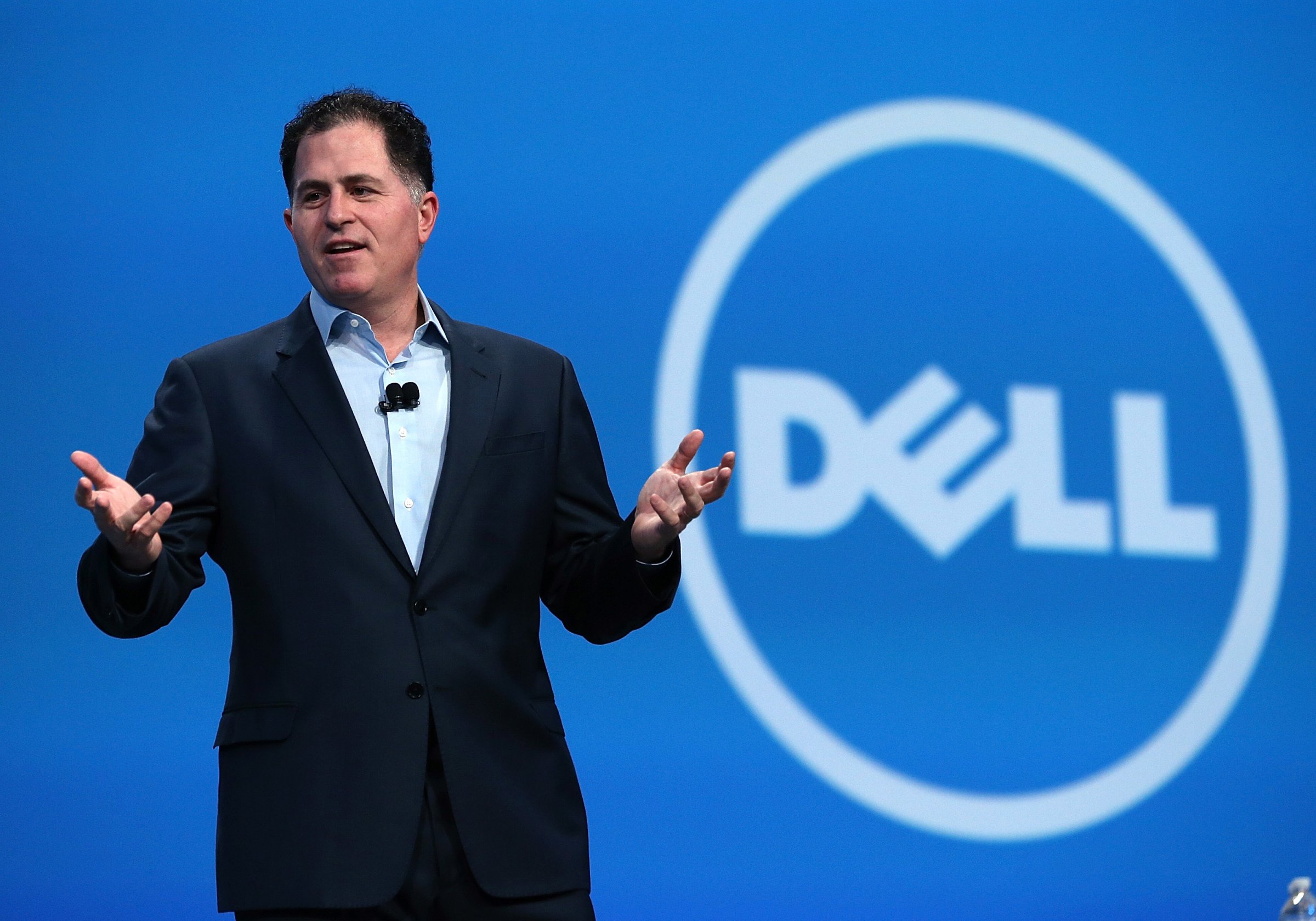
Dell is officially acquiring digital storage company EMC Corporation for approximately $67 billion, marking one of the biggest technology mergers in history.
Hopkinton, Mass.-based EMC, a 36-year-old industry fixture that makes data, and storage products for businesses, has a market value of about $50 billion. Round Rock, Texas-based Dell, which rose to prominence in the 1990s thanks to its cheap, customizable laptops, went private in 2013 for $24.4 billion.
Both companies were darlings of the first big technology boom in the 1990s: Dell sold PCs; EMC sold corporate storage systems. As the computing market shifted, both companies expanded into new areas. While Dell still sells laptops, displays, and servers, it also sells security services, cloud management software, and business integration services. Investment in those areas has accelerated since 2010, the year Dell bought Boomi, a company that manages services between clouds. Since taking the company private in 2013, Dell has struck partnerships with a host of cloud providers, talked up so-called converged architectures, and created private clouds for its own customers.
EMC meanwhile has focused on high-end enterprise storage equipment that’s less threatened by the cloud computing revolution. It has also made key investments in new business areas, such as its 2004 acquisition of VMware, which makes the virtualization software that gave rise to cloud computing in the mid-2000s, its 2010 acquisition of Greenplum, which made data warehouse software, and the 2013 launch of Pivotal, which makes data analytics software. EMC’s “federation” business model—traditional EMC at its center; VMware (which went public in 2007 and now has a market cap of about $34 billion), RSA and Pivotal orbiting it—has been applauded for allowing the parent company to reap the benefits of the newer companies’ success without impeding their innovation. In more recent years investors such as Elliot Management have looked to break it up in the interest of extracting more value.
So why pair Dell and EMC?
For EMC’s part, Dell is simply an attractive buyer—especially if Hewlett-Packard didn’t bite and Cisco is unlikely to. In the world of big IT equipment providers, Dell is the last man standing, one reason that the company may appeal to EMC and its bankers.
For Dell’s part, EMC offers additional assets in storage, security, and data analytics, thanks to Pivotal. Dell lacks EMC’s clout in the enterprise storage business, a credit to EMC’s VNX enterprise storage arrays, and that is desirous to the folks in Round Rock. EMC’s storage products are an additional boon to Dell’s strategy if the latter company decides that it wants to become what people in the industry call a “converged infrastructure provider”—in other words, a provider of all-in-one boxes that offer networking, storage and computing. Cisco pioneered the concept with its Unified Computing System servers; HP followed suit. Here, Dell has put a toe in the water with last year’s deal with Nutanix, but there otherwise hasn’t been much progress on that front.
There’s one catch for Dell, though: VMware. The company’s growth has been slowing as its customers increasingly choose “open source” alternatives that promise to be cheaper and more versatile than proprietary options. And one of the companies pushing open networking happens to be Dell, making VMware integration at odds with the Texas company’s ethos.
So if you’re Dell, and you’re in the market to buy EMC, there’s a lot to like in that company’s portfolio. (And we haven’t even mentioned the computer security company RSA.) But does it all add up enough to justify tens of billions of dollars for the entire package? Probably not. And nothing about such a deal addresses the existential plight of both companies: a future where their core businesses (and profit centers) are under attack and facing almost certain decline.
And that’s why technologists are still scratching their heads.
More Must-Reads from TIME
- Donald Trump Is TIME's 2024 Person of the Year
- Why We Chose Trump as Person of the Year
- Is Intermittent Fasting Good or Bad for You?
- The 100 Must-Read Books of 2024
- The 20 Best Christmas TV Episodes
- Column: If Optimism Feels Ridiculous Now, Try Hope
- The Future of Climate Action Is Trade Policy
- Merle Bombardieri Is Helping People Make the Baby Decision
Contact us at letters@time.com